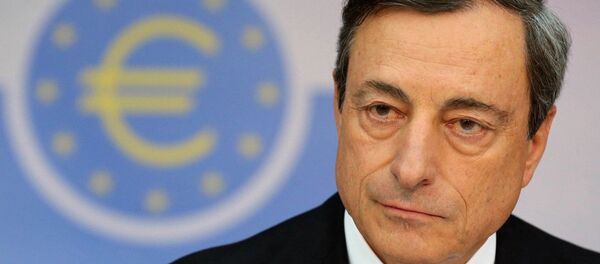"The (European) Central Bank has already introduced various measures to help growth… we see no reason to buy up state bonds now," Christoph Schmidt, an economic adviser to the German government, said as quoted by Reuters.
In Schmidt’s opinion, despite Eurozone deflation, a bond-buying program can quickly be launched in order to stave off falling prices when necessary. But preemptive easing would ruin the political will for economic reforms in less efficient member states, the expert said.
"The more active the central bank is… the bigger the risk that France and Italy throw the necessary reforms into the long grass," Schmidt said.
Jens Weidmann, member of the ECB Governing Council, in an interview with the Frankfurter Allgemeine newspaper also spoke out against the ECB's plan to launch a full-scale bond-buying program.
"As things are at the moment and if oil prices remain this low, inflation will be lower than expected, but growth will be better," Weidmann said. "The situation in Europe isn't as bad as some people believe."
According to Bundesbank data, Germany's economy will expand by 1% in 2015. This year German GDP added 1.4%, lower than the June forecast of 1.9%.
The ECB’s monetary policy is pretty lax already as the interest rate is ultra-low, kept at 0.05%; the regulator has intervened sporadically in the economy during the past two years. However, a full-scale bond-buying program would provide a significant boost in confidence to the Eurozone, including in financial markets.
“Cheap money should not be allowed to dent the reform zeal in some countries. There is no alternative to structural reforms — if things are going to improve again," Schaeuble said. “Germany's voice has weight… But even if we're the strongest economy, Germany can't always get its way. At the end of the day a compromise is what's needed. But the arguments from Jens Weidmann are strong and are listened to in the ECB,” German FM added.
In Schaeuble’s opinion, a compromise can be achieved via direct consultations between himself, the German chancellor Angela Merkel and ECB head Draghi.




